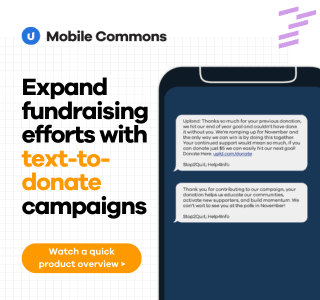 How do consumers feel about mobile marketing? Well, the IBM Institute for Business Value recently published a study analyzing consumer preferences for mobile. The study found that consumers want their phones to provide them with instant communication and personalized recommendations – in other words, people are asking for the two hallmarks of text messaging.
How do consumers feel about mobile marketing? Well, the IBM Institute for Business Value recently published a study analyzing consumer preferences for mobile. The study found that consumers want their phones to provide them with instant communication and personalized recommendations – in other words, people are asking for the two hallmarks of text messaging.
What consumers want, and what they’re willing to share in exchange for it
The IBM study wanted to find out what people wanted out of their mobile devices when it comes to shopping. After analyzing survey data from over 100,000 consumers from 19 different countries, the report concluded that people heavily favored the use of mobile for consumer outreach:
- 42% of people said they would be willing to share their mobile phone number in exchange for text messages.
- 44% of consumers want on-demand communication when they are inside a store.
- 41% said it is important that store associates offer personalized promotions based upon their purchase history or preference.
Interestingly, the study also found that sales associates were the least trusted resource when consumers want to know more about a product – meaning they are much more likely to turn to trusted technologies than in-store representatives when it comes to doing their research.
 What this consumer research means for mobile marketing
What this consumer research means for mobile marketing
Text messaging is a great way to engage consumers directly and drive more sales while they’re on their phone. Indeed, a 2012 survey claimed that 25% of consumers engaged in online shopping only via mobile. Here are three ways brands can use the insights from the IBM study and use text messaging to improve the consumer shopping experience:
- One popular use of consumer-driven text messaging is geofencing, a technology that permits stores to know when a person with a smartphone is near a store location. Once customers approach the store, they automatically receive text messages on anything from exclusive promotions to new deals.
- Companies can also analyze data on shopping history in order to customize their message content for each individual consumer. For example, if Mike buys a pair of socks every time that he visits his local department store, that store can send him a personal text message alert the next time there is a sock sale.
- Querying users via text message in order to get basic information – such as their age and interests – is a great way for companies to gather data to create personalized mobile coupons and offers. For example, you can ask a user for their birthday to send out a personalized text message coupon on their special day.
 In this technology-laden age, consumers have come to expect more from their shopping experiences. So it comes as no surprise that consumers want on-demand communication, or that they would opt for text messaging as a trusted and viable resource. That’s because people love their phones, and while other mobile apps come with stores of glitches and fade out of popularity, text messaging continues to be a way of offering immediate support. The call from consumers is clear – all it takes now is for brands to answer it.
In this technology-laden age, consumers have come to expect more from their shopping experiences. So it comes as no surprise that consumers want on-demand communication, or that they would opt for text messaging as a trusted and viable resource. That’s because people love their phones, and while other mobile apps come with stores of glitches and fade out of popularity, text messaging continues to be a way of offering immediate support. The call from consumers is clear – all it takes now is for brands to answer it.
To learn more about how to integrate text messaging into your mobile marketing outreach, please contact us.

